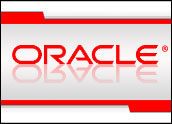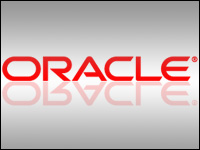
There’s more behind Oracle’s decision toprebrief bloggers on its latest product release than a sense that the time is ripe.
With the launch of On Demand, version 15, the company is introducing robust new Web 2.0 functionality — and it’s sending a strong signal that more of this type of application development is on the horizon.
Oracle’s message is that Web 2.0 is now part of the CRM family, Beagle Research founder Denis Pombriant told CRM Buyer. “You talk to [Oracle executive Anthony Lye] and you get a sense he is all over Web 2.0 and social networking and what it means for the CRM industry.”
To be sure, the industry has been talking about Web 2.0 for some time, Pombriant continued, but a lot of companies have done little more than talk.
Pieces of the Whole
The main value-add the new release offers is the ability to use pieces — or portlets — of the Oracle CRM app on a variety of media.
For instance, users can take Oracle CRM On Demand objects — top accounts or contacts or sales leads — and embed them as gadgets on iGoogle or MyYahoo or on their BlackBerry devices. They can also add relevant content from other applications such as MySpace and RSS (really simple syndication) feeds.
“We are not just throwing data around without security precautions,” said Lye, who is senior vice president of Oracle CRM On Demand. “Only people with authenticated accounts can access these portlets” — even when they’re embedded on an open iGoogle page.
Oracle has also incorporated a social networking-type function called “sticky notes,” which provides a forum for back-and-forth posting through a home page without having to navigate to specific records. For example, colleagues can create a social network through sticky notes associated with a specific opportunity.
“We wanted On Demand to be connected to news and networks on the Internet,” Lye elaborated. “So we built connectivity to Reuters news and provided connectivity to social networking sites via an [application programming interface] we built using the OpenSocial API from Google.”
This means a salesperson can link a relationship it might have on LinkedIn or MySpace — or any of the 3,000 other sites that the API covers, save Facebook — and be updated on the portlet every time a change is made to the profile.
New Mobile Sales
Oracle has also released Oracle Mobile Sales Assistant, a new mobile sales application that uses Web services to connect to On Demand.
Oracle Mobile Sales Assistant is designed to facilitate collaboration and ease the performance of frequent routine tasks while on the road. It includes features for managing appointments and collaborating with sales team members, along with automated prompts for follow-up.
Users can view account information and customer contact information, and place calls, e-mail, or text message through the application. They can also get driving directions via PIM (personal information management) and Web integration.
Oracle Mobile Sales Assistant supports the BlackBerry smartphone from Research In Motion, and is available for Oracle CRM On Demand customers for US$30 per user per month.























































